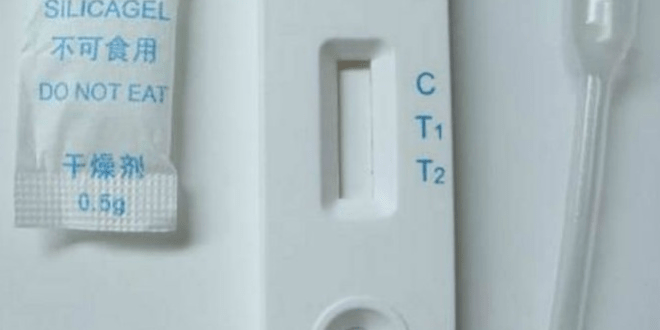What is Dengue Ns1 test?
The Dengue NS1 test, also known as the Dengue Non-Structural Protein 1 test, is a diagnostic blood test used to detect the presence of the NS1 antigen of the dengue virus in a patient’s bloodstream. Dengue is a mosquito-borne viral infection that can cause a wide range of symptoms, from mild flu-like symptoms to severe and potentially life-threatening dengue hemorrhagic fever or dengue shock syndrome.

Here’s some key information about the Dengue NS1 test:
- Purpose: The NS1 antigen is a protein produced by the dengue virus during the early stages of infection. This test is used primarily for the early diagnosis of dengue infection, typically within the first few days of symptoms.
- Method: The test involves taking a blood sample from the patient, which is then tested for the presence of the NS1 antigen using a specific assay, such as enzyme-linked immunosorbent assay (ELISA) or rapid diagnostic tests (RDTs). It’s a relatively quick and straightforward test.
- Timing: The Dengue NS1 test is most effective in the early stages of the infection, usually within the first 1-7 days after the onset of symptoms. After this initial period, the test may become less reliable, and other tests, such as serology tests for dengue antibodies, may be necessary for confirmation.
- Interpretation: A positive NS1 test result indicates the presence of the dengue virus in the patient’s bloodstream, confirming an acute dengue infection. A negative result does not necessarily rule out dengue infection, as it may be too early in the course of the illness for the antigen to be detectable. In such cases, follow-up testing may be needed.
- Clinical Importance: Early detection of dengue is crucial for appropriate patient management. It helps healthcare providers identify individuals who may develop severe forms of the disease and require hospitalization or other medical interventions.
- Limitations: The Dengue NS1 test has some limitations. It may not detect the virus in all cases, especially in later stages of infection. False-positive and false-negative results can occur, so clinical judgment and other diagnostic tests may be needed to confirm the diagnosis.
It’s essential to consult with a healthcare professional if you suspect you have dengue or are experiencing dengue-like symptoms. They will determine the appropriate diagnostic tests and treatment plan based on your specific situation. Additionally, it’s crucial to take preventive measures to reduce the risk of dengue infection, such as using mosquito repellent and eliminating mosquito breeding sites around your home.
Price of the Dengue NS1 test:
The price of Dengue NS1 test can vary widely depending on several factors, including your location, the type of healthcare facility or laboratory where the test is performed, and whether you have health insurance. The Dengue Ns1 test price is approximately 100 taka in most government hospitals .In private hospitals or diagnostic centers the price of Dengue NS1 test is approximately 300 taka.
Procedure for the Dengue NS1 test:
The Dengue NS1 test is a diagnostic blood test that detects the presence of the NS1 antigen of the dengue virus in a patient’s bloodstream. Here’s a general procedure for the Dengue NS1 test:
1. Preparations:
- The patient typically visits a healthcare facility, clinic, or laboratory where blood samples can be taken.
- It’s essential to inform the healthcare provider of any medications, allergies, or medical conditions that may be relevant.
2. Blood Collection:
- A healthcare professional, usually a nurse or phlebotomist, will collect a blood sample from the patient.
- Blood is typically drawn from a vein in the arm, usually from the inside of the elbow area.
3. Sample Processing:
- The collected blood sample is placed in a sterile tube or vial.
- The tube is labeled with the patient’s information for identification.
4. Laboratory Testing:
- The blood sample is sent to a laboratory for analysis.
- In the laboratory, the blood sample is centrifuged to separate the serum (the liquid part of the blood) from the cellular components.
5. NS1 Antigen Detection:
- The separated serum is tested for the presence of the Dengue NS1 antigen using a specific assay, such as an enzyme-linked immunosorbent assay (ELISA) or a rapid diagnostic test (RDT).
- The assay uses antibodies that are designed to bind specifically to the Dengue NS1 antigen if it is present in the serum.
6. Interpretation of Results:
- After testing, the results are interpreted. A positive result indicates the presence of the Dengue NS1 antigen, confirming an acute dengue infection.
- A negative result means that the Dengue NS1 antigen was not detected. However, if a person is suspected of having dengue and the test is negative, follow-up testing (such as dengue IgM and IgG antibody tests) may be recommended.
7. Reporting Results:
- The laboratory or healthcare provider communicates the test results to the patient.
- In case of a positive result, the healthcare provider will discuss further management and treatment options.
The entire Dengue NS1 test procedure is relatively quick and can usually provide results within a few hours to a day, depending on the laboratory’s processing time.
It’s important to note that the Dengue NS1 test is most effective in the early stages of dengue infection (usually within the first 1-7 days of symptoms). Beyond this initial period, the test’s sensitivity may decrease, and other tests, such as dengue antibody tests, may be needed for confirmation.
Provided by HRTD Medical Institute Mirpur-10, Dhaka.
 Pathology Training Institute in Bangladesh Best Pathology Training Institute in Bangladesh
Pathology Training Institute in Bangladesh Best Pathology Training Institute in Bangladesh


